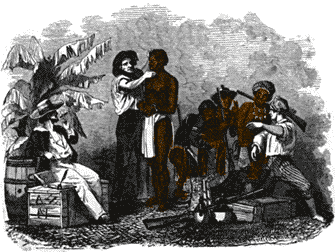
Brazilian Gold, African Slaves
England and Holland, the leading gold and slave contrabandists, amassed fortunes in the illegal "black meat" traffic and are said to have illicitly garnered more than half the metal the Portuguese Crown was supposed to get from Brazil in quinto real tax. But Brazilian gold was channeled to London by licit as well as illicit methods. The gold boom, which brought a host of Portuguese to Minas Gerais, sharply stimulated colonial demand for industrial products and at the same time provided the means to pay for them. Just as Potosi silver rebounded off Spanish soil, Minas Gerais gold only reached Portugal in transit. The metropolis became an intermediary. In 1755 the Marquis de Pombal, Portugal's prime minister, tried to revive a protectionist policy, but it was too late. He declared that the English had conquered Portugal without the trouble of a conquest, that they were supplying two-thirds of its needs, and that British agents controlled the whole of Portuguese trade. Portugal was producing almost nothing, and the wealth brought by gold was so illusory that even the black slaves who mined it were clothed by the British.
Celso Furtado has noted that Britain, following a farsighted policy with respect to industrial development, used Brazilian gold to pay for essential imports from other countries and could thus concentrate on investments in the manufacturing sector. Thanks to this historical graciousness on the part of the Portuguese, Britain could apply rapid and efficient technical innovations. Europe's financial center moved from Amsterdam to London. According to British sources, the value of Brazilian gold arriving in London reached £50,000 a week in some periods. Without this tremendous accumulation of gold reserves, Britain would not have been able, later on, to confront Napoleon.
Open Veins of Latin America, Galeano